Description
Traditionally, teachers are not trained to teach professional courses. Thus, they learn even the essential principles of teaching through experience, ‘on the job’. This leads to a less than satisfactory in-class learning experience for most students in many courses, except if the teacher has a natural orientation to teaching. This course is aimed to introduce the essentials of facilitation of student learning (‘teaching’) in an interesting way to any teacher of professional courses, with a special focus on engineering. Further, education is a vast, old area of research, with rigorous, evidence-based knowledge that is useful for the facilitation of learning. However, the knowledge is not in an easily accessible form for teachers without experience in education research. This course also aims to begin bridging that gap, by appropriately introducing research in education to engineering teachers.
INTENDED AUDIENCE
All engineering teachers and aspiring teachers.
INDUSTRY SUPPORT
Any industry or start-up interested in education.
ABOUT THE INSTRUCTOR
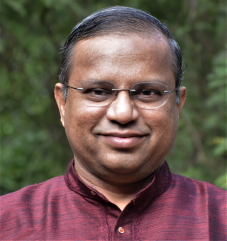
Prof. G. K. Suraishkumar is a Professor in the Department of Biotechnology, Indian Institute of Technology Madras (IITM). He has been at IITM as a Professor since May 2004, and was earlier a faculty member in the Department of Chemical Engineering at the Indian Institute of Technology Bombay (IITB) from April 1993 until mid-May 2004. He was also an Associate Faculty member in the erstwhile Centre for Biotechnology, which is now the Department of Biosciences and Bioengineering, at IITB, between 1995 and 2004.
He earned his Ph.D. from Drexel University, Philadelphia, USA in 1993, and his B.Tech. in Chemical Engineering from IITM in 1986. He also did his Masters work at the University of Cincinnati, USA, between 1986 and 1988.
He is passionate about improving student learning and has published papers in reputed international journals on the methods that he had developed for the same. He is the author of a book, Continuum Analysis of Biological Systems: Conserved Quantities, Fluxes, and Forces, which was published world-wide by Springer Publishing in March 2014; the foreword has been written by the reputed author of the famous textbook, Transport Phenomena, Professor R. B. Bird. Recently, he created two 10-h MOOCs on Bioreactors, and Biology for Engineers and other Non-biologists as NPTEL online certification (NOC) courses. Earlier, he created a 40-lecture NPTEL video course on Classical Thermodynamics for Biological Systems. He has also created other short videos on biochemical engineering principles.
His major area of research is reactive species – currently, the relevance of them in cancer and nanoparticle toxicity. Earlier, his research group had made significant, original contributions in the area of reactive species applied to improve bioreactor productivities and bio-oil which were financially supported through many sponsored research grants. The research contributions have been better disseminated through publications in reputed international journals– the complete list of publications is available as a link from his Department webpage, https://biotech.iitm.ac.in/faculty/suraishkumar-g-k/). He is also the inventor on 3 (granted) + 3 (under process) patents. Further, the technology developed in his group was successfully applied at Biocon industries, and has been featured in prestigious technology alerts such as the one by Frost and Sullivan. He has guided many Ph.D., and Masters theses. Some recognitions of his work by others are listed in his web-page given above.
Administratively, he played pivotal roles in the set-up of the Departments of Biotechnology, as the first formal Department Head, first at IIT Madras and later, at IIT Hyderabad. He was one of the main architects of the first postgraduate program in Clinical Engineering in India, which is a multi-Institute program, and a first of its kind in India. In addition, he contributed as the Head of the Sophisticated Analytical Instrumentation Facility, Chennai. He continues to contribute on National level faculty selection/advisory/institution level committees in relevant areas.
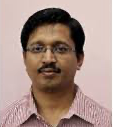
E. PRASAD, Head, Teaching Learning Centre (TLC) and Associate Professor, Department of Chemistry, Indian Institute of Technology Madras, Chennai 600 036, INDIA
Phone: ++91-44-2257 4232 ; Email: pre@iitm.ac.in
Educational Qualification: BSc., & MSc. From Calicut University, Kerala, India during 1990-1995; Ph.D. from NIIST, Thiruvananthapuram, Kerala, India in Photophysical Chemistry in 2000.Post Doctoral Research Experience: (2001 to 2006) Texas Tech University & Lehigh University, USA and University of Bonn, Germany (Alexander von Humboldt Fellow)
Professional Experience (11 years): Faculty at Department of Chemistry, IIT Madras since 2006; (8 years): Core team member, Teaching Learning Centre, IIT Madras; (3 years): Head, Teaching Learning Centre, IIT Madras. Specialization and Expertise: Chemistry: Photophysical Chemistry, Design and Synthesis of organic and hydro gelators for various applications; Education/Teaching: Designing Learning Outcomes for Courses, Conducting Classes using Active and Collaborative Learning Techniques.Awards and Distinctions: AvH Fellowship (2002), Young Faculty Recognition Award (IIT Madras, 2011).Research Publications in Peer Reviewed Journals: 65.Conference Paper: Development of a Teaching Learning Centre and Ongoing Faculty Development Programs – A Case Study, Prasad Edamana, Ajith Kumar Kolar, Pramod S Mehta, Sujatha Srinivasan and Jeffrey Froyd, American Society for Engineering Education, USA, June, 2012.
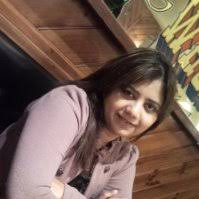

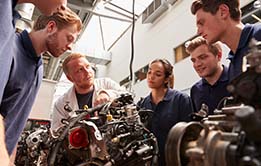
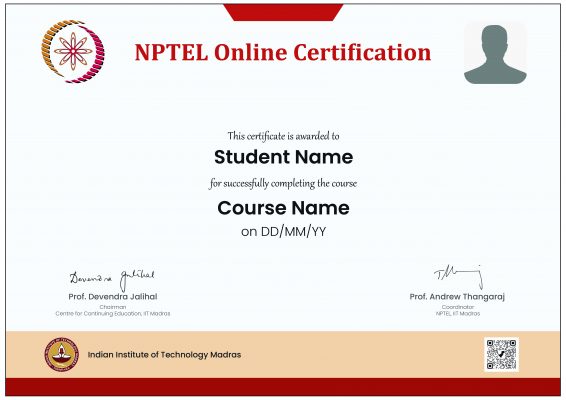
A. Evangeline –
Best course